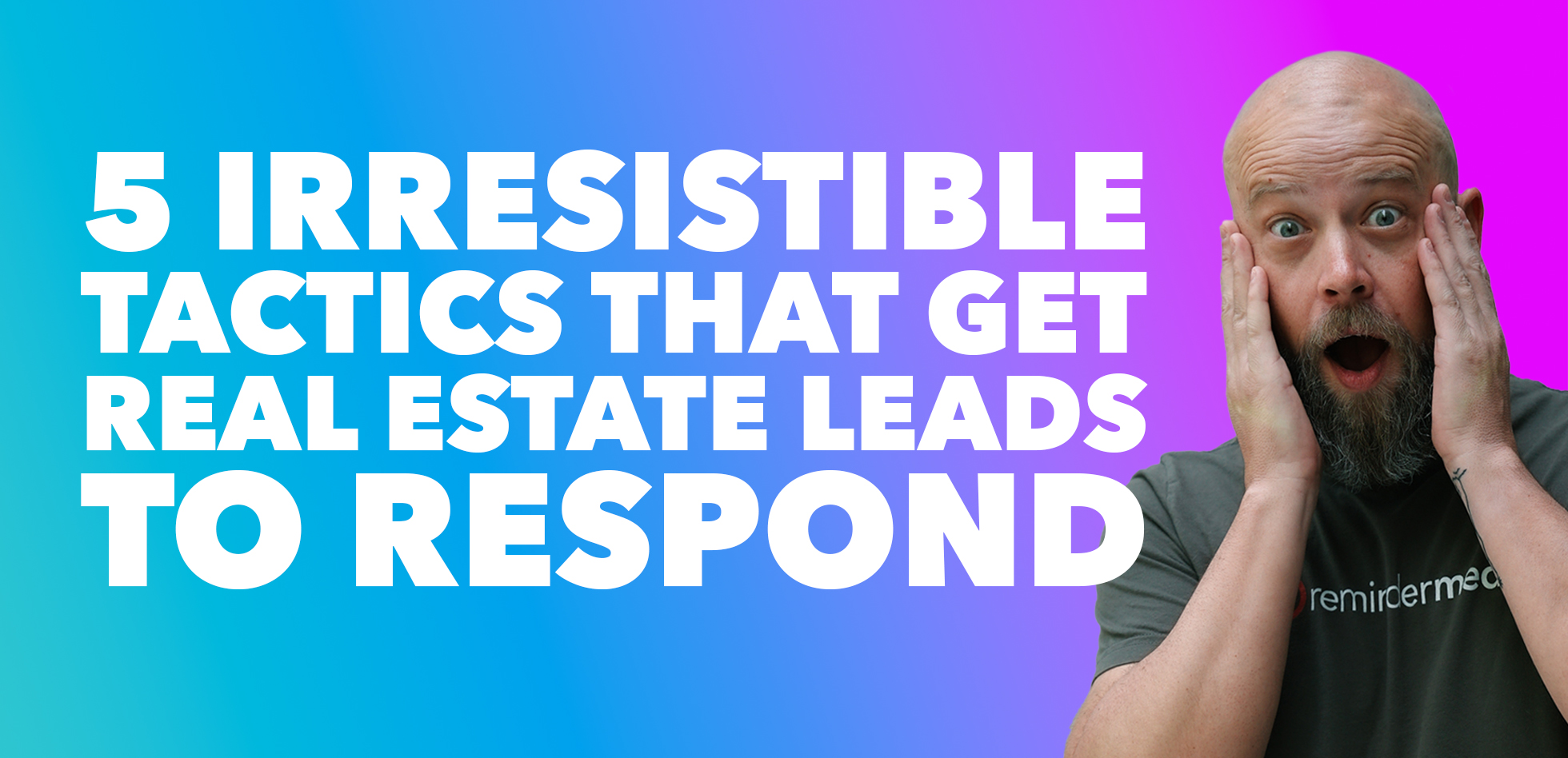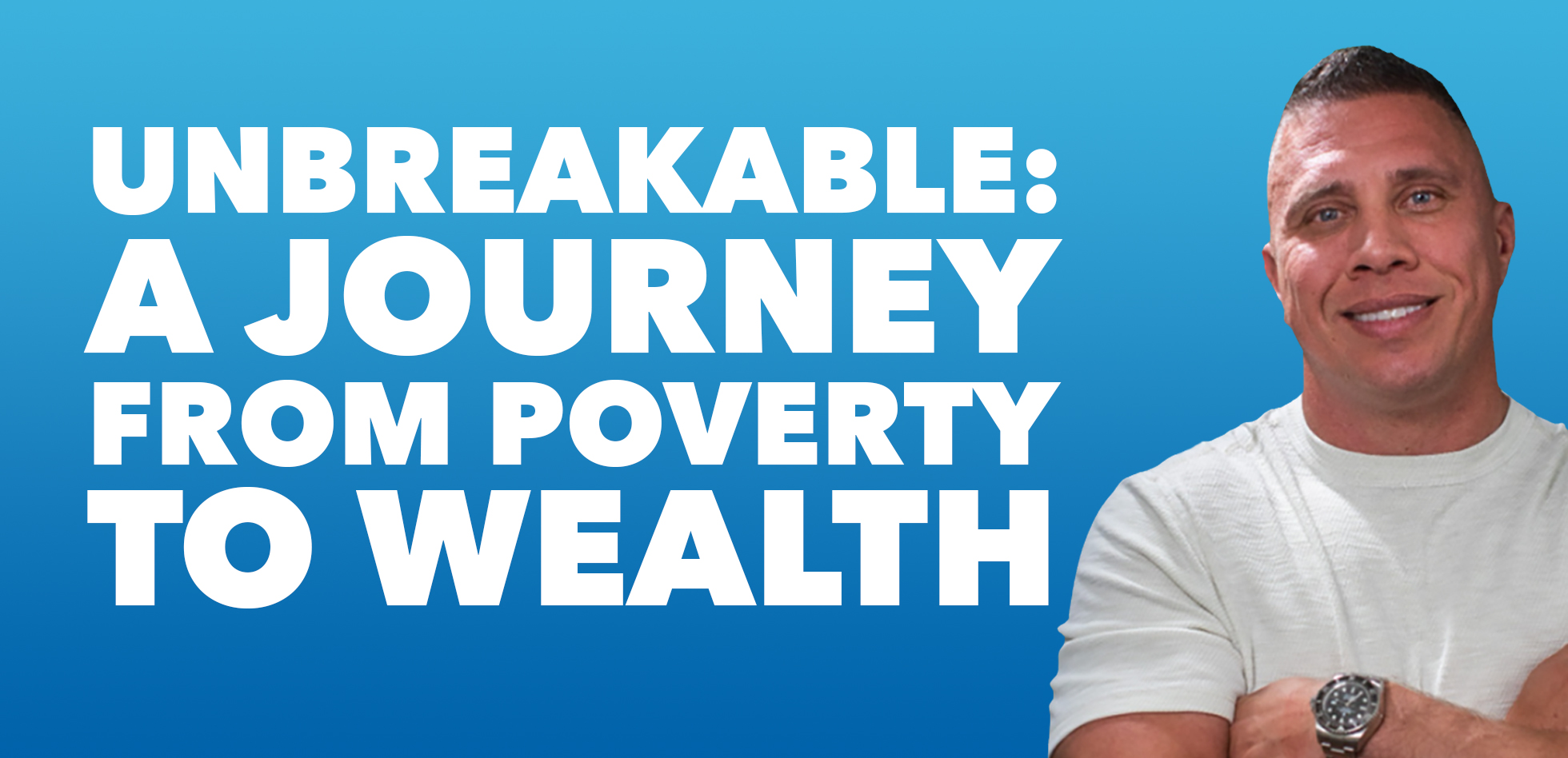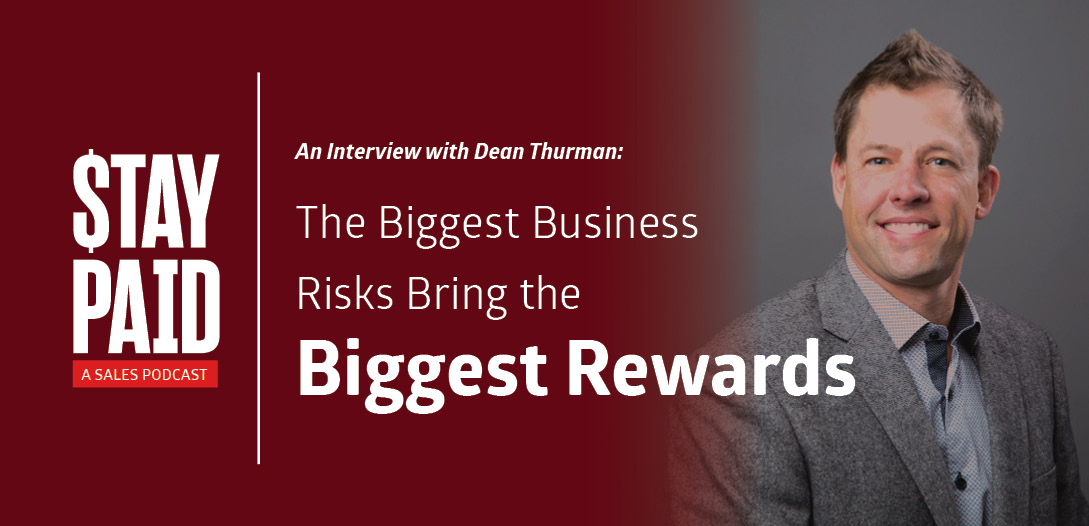Dean Thurman, co-founder of digital marketing company White Glove Workshops and co-owner of InvestWise Financial, has built his business off the power of giving over receiving. His dedication to his businesses and belief that risk-taking pays off has been the key to his success.
In this episode of Stay Paid, Luke and Josh sit down with Thurman to discuss how his initial failed business attempts made him a stronger person and business owner, and why going out on a limb with your business sets you up for greater success.
Key Points
- Going out on a limb with your business can offer big rewards
- Providing education-based content for prospects can generate more clients
- The core to business is fostering and building relationships
About Dean Thurman
Dean Thurman first entered the financial world when the US was on the brink of a recession, and he has seen many highs and lows in the industry since then. It was in the tough times that Thurman learned to be scrappy and persevere in his business—coming up with intuitive ways to success.
He realized that, no matter the industry, if you are a service professional you have to be a marketer first. Thurman stumbled onto seminar marketing, and began to follow in the footsteps of Jack Reed, whom he calls the “godfather of seminars.” Instead of focusing on offering his services to people individually, he scaled his marketing to serve as many people as possible at one time.
After a few unsuccessful startups, in 2012 Thurman and his business partner formed the concept of worksite based education, which morphed into Social Security 567, and later turned into his current company, White Glove Workshops.
Q: How did you get the drive to start White Glove Workshops? Was it out of necessity? How did you pick yourself up?
A: I’ve been fired from every job I’ve ever had. I don’t really fit the mold of corporate America. I don’t think many entrepreneurs do. It’s just a sickness, a passion, a drive, to create something and believe in yourself and believe in the United States of America. It’s critical to have a spouse, or friends, or parents who are 100 percent on board, and your support system. It is a grind every single day. You hear all these stories that if there’s a failure, you’ve only learned a new way that doesn’t work. Getting knocked down is just part of the program, but not getting back up is your real failure. If things continue to go well, then hopefully, one day, I’m satisfied. That’s the risk of an entrepreneur.
Q: You started this company—Social Security 567. Did you do that to grow your investment business, or did you think of your own success with seminars and want to create a seminar for other people to do?
A: We took a pause from the seminar business because the ROI wasn’t there. But one day I said, “I wonder if we can get people to register for a class using something other than old-fashioned snail mail?” Everything is digital—Snapchat, Instagram, Facebook—but we were thinking about how we could do it digitally back then.
Q: How did Social Security 567 translate to White Glove Workshops?
A: Once we figured out how to get highly qualified, eager individuals into a library or community center, we wondered if we could do that for other financial advisors around the country. We quickly put on our entrepreneurial hat, but also our financial advisor hat, and thought about how we could make White Glove Workshops an absolutely irresistible offer and provide extreme value for a busy professional.
We listed all the things we hated about seminar marketing as financial advisors: we hated having to pay money up front, we hated having to basically plan a small wedding every time we wanted to do a seminar, we hated looking at the weather and if no one would show up, we hated how we could go through all that and then get no clients and be out five or ten thousand dollars. So, not only is White Glove Workshops a digital marketing company for financial advisors, we’re expanding into social media management, practice management, coaching, education—as we morph into White Glove Marketing.
Our core business is such a massive value because we’ve completely changed the business model of seminar marketing. We’re now White Glove for real estate professionals, financial advisors, orthopedic surgeons, mortgage brokers, estate planners—we’ve got many, many verticals now. And we say you don’t have to pay us any money up front, you basically only have to pay us if we did a good job. But you have to do education only, you’re not allowed to sit there and do a pitch. One of our core values is giving, and we want to give the community an unbiased, ethical, professional education.
Q: Could you walk us through the idea of hosting a seminar and what you do for people?
A: White Glove Workshops takes care of all the logistics, so basically putting together an audience of somewhere between 20 and 50 people. We’ll actually train and coach who we call the host, which is the presenter for the workshop—typically a financial advisor who is going to show up at the local library for a presentation on how to reduce taxes in retirement, for example. They’ll do the presentation, that’s all they have to do is show up and present the educational information. Folks in the class might raise their hand and say, “You’re a pretty knowledgeable person. I’d like to come in and do a one-on-one consultation where you can go over my personal finances.” The next day, they’ll pay us for our services.
We don’t just end there, though, we have a whole nurturing campaign. For the financial planning industry, it is a totally new concept to nurture our clients and prospects, and I’m so excited about it. Any of the podcast subscribers and listeners who are service professionals: you need to realize that you’re a marketer first and a service provider second.
Q: What are some of the differences between a webinar and a live event?
A: At the end of the day, I truly believe financial planning is a personal relationship—sitting across the table from someone and looking them in the eye. I’m not afraid of robo-advisors or anything like that because it is such a personal thing. Once you say, “I might retire at age 60, but I think my elderly parent might need to move in with us, and we have a daughter with special needs,” there is no way a computer can figure that out.
The webinar and the lead generation is much, much colder. Why would someone go to a library or community center to learn about retirement planning—you can easily get that on YouTube, any magazine, any of that kind of stuff. They want to see somebody and have that relationship. A webinar is something completely different. You really need to bring the personal touch through the webinar, and we need a bigger audience because it’s a smaller closing ratio.
Q: Is there a routine you do consistently to be successful in your personal and professional life?
A: I think it’s a combination of coffee, craziness, and I sleep with a CPAP machine, so the three c’s. Actually, one of my favorite sayings is, “Attitude is everything,” and it really is. The glass always has to be half full, and you have to believe in yourself that way. You have to go out on a limb because that’s where the fruit is—take that risk.
Good ideas are a dime a dozen, but people who implement them are priceless. It’s the attitude of the company and its core values. As a leader of a company, you have to remember, although we all have egos, none of us are as smart as all of us. So, when you’re sitting there with other folks, no matter who they are or what position they’re in, they all have great ideas. It’s your job as the leader of the company to implement them.
Q: Knowing what you know now, what would you tell your younger self?
A: Don’t worry so much. You have to believe in yourself, and it’s going to be awesome. Take care of yourself and take care of your health. But just get out there and do it. So many people don’t start their businesses or expand their businesses because of fear. Don’t be afraid—just do it. Nobody regrets what they did, only what they didn’t do.
Action Items
Following this podcast, our goal is to provide you with as many actionable tips as possible. This episode includes…
- Check out White Glove Workshops, and try a seminar.
- Determine if you have a support system. If not, seek one out.
As always, take action on these tips!



















 Soundcloud
Soundcloud iHeart Radio
iHeart Radio Spotify
Spotify Spotify
Spotify


